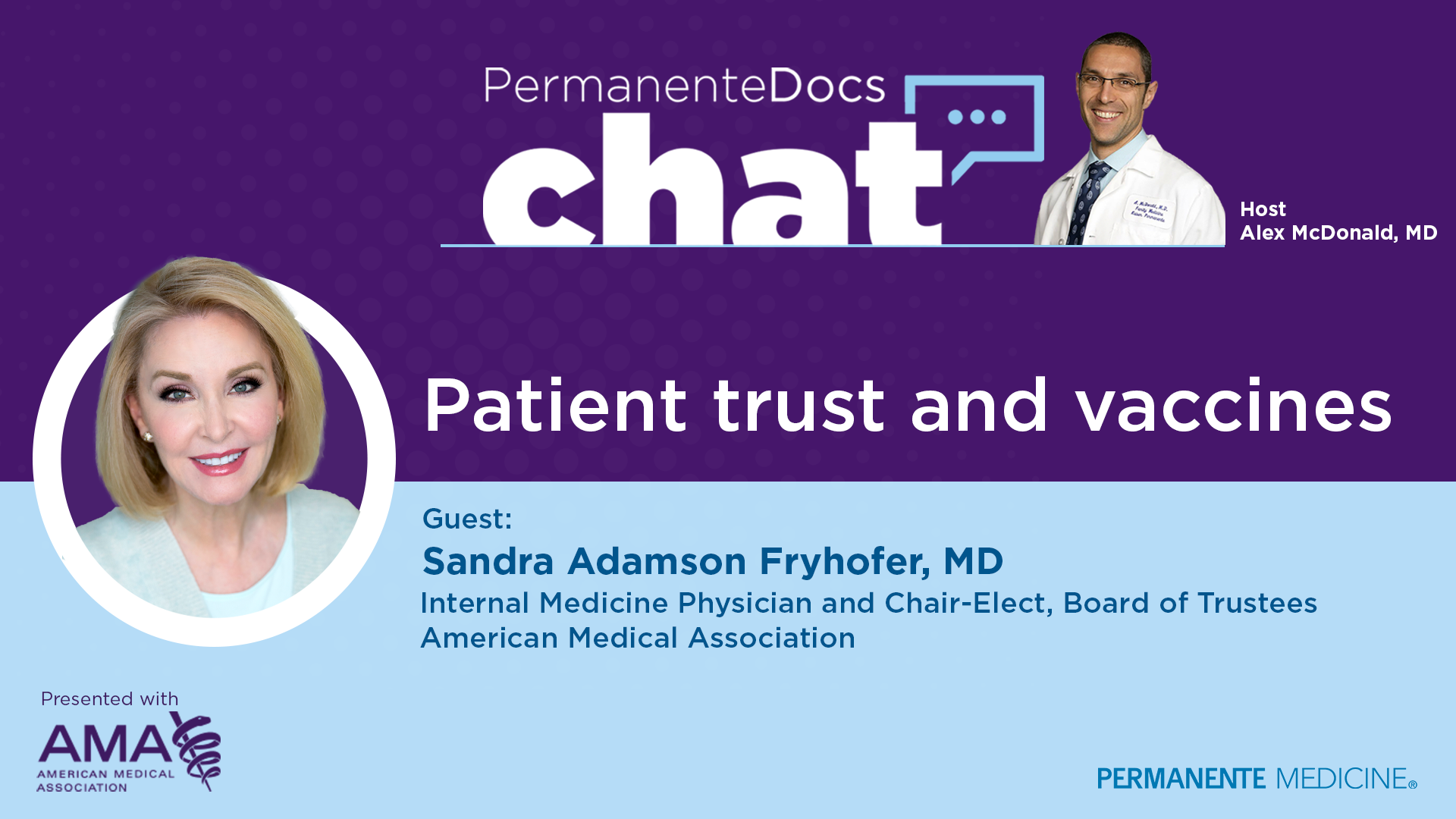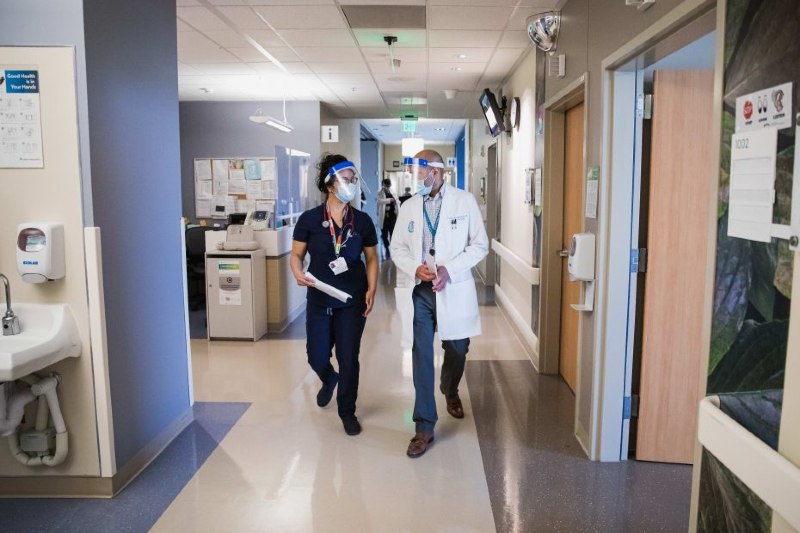PermanenteDocs Chat podcast on flu, COVID, and RSV vaccine safety and effectiveness updates with Sandra Fryhofer, MD, of the American Medical Association.
Kaiser Permanente creates COVID-19 Social Health Playbook
Health care system provides model for screening patients for access to food, housing, other essential factors for health
OAKLAND, Calif. — Kaiser Permanente, the nation’s largest integrated nonprofit health care system, has created guidance that can be widely adopted across the health care industry for assessing COVID-19 patients’ need for social resources that will allow them to safely recover and reduce community spread of the virus.
The Kaiser Permanente COVID-19 Social Health Playbook provides clinical care teams with guidance and tools for screening patients for social needs, connecting them to help, and following up to ensure their needs are met. The initial release of the playbook has a strong focus on addressing COVID-19 patients’ social needs to improve their health outcomes and to prevent further transmission of the virus. It is publicly available as a free resource for care providers across the industry.
Kaiser Permanente has already broadened the scope of its care and services to address crucial factors that affect people’s health, including having a safe place to live, enough income, healthy meals, and meaningful social connections.
These social needs are growing amid the COVID-19 pandemic — and disproportionately impacting women and communities of color — as millions have lost jobs, and access to school-provided meals and safe transportation over the past 7 months.
“Anyone working on the front lines of health care knows it is impossible for people to achieve good health if they lack access to food, shelter, and other fundamental needs. The COVID-19 pandemic has compounded these challenges, and that means we must rethink how we deliver care and address social health in this current environment,” said Greg A. Adams, chairman and CEO of Kaiser Foundation Health Plan and Hospitals.
The playbook and the emphasis it places on social health factors are part of Kaiser Permanente’s long-term vision to improve the quality, effectiveness, and value of health care. Other resources Kaiser Permanente is deploying to help its members address social factors during the pandemic include:
- Thrive Local Connections. A national call center where Kaiser Permanente members can seek and access social resources outside of care appointments. Call center agents screen members for social needs and then use curated resource directories to help members locate programs and services in their local communities that help with food, housing, child care, financial assistance, and other critical services.
- Thrive Local. Launched in 2019 in partnership with Unite Us, Thrive Local is an online and searchable social services resource directory network created to integrate social factors into Kaiser Permanente’s care delivery. Thrive Local is available to Kaiser Permanente members and a growing network of health care and social service providers working together across its service areas. In little more than a year, Kaiser Permanente has shared more than 26,000 community resources with its members and has launched 18 community networks. There are plans to have a total of 40 active community networks of health care and social service providers working together to help people secure safe housing, healthy food, and other essentials by 2022.
“With COVID-19 exacerbating existing uncertainty and inequity in our communities, we know the time for swift and bold action is now — which is why we are fundamentally rethinking what it means to care for our members’ health, and offering resources that address the social factors that form the foundation of healthy, productive years,” said Bechara Choucair, MD, senior vice president and chief health officer for Kaiser Permanente.
Prior to the COVID-19 pandemic, research showed that 33% of Americans were experiencing stress related to their social needs, and 68% reported having at least one unmet need during the previous year.
Kaiser Permanente surveyed 8,800 members about their social needs in 2020. Latinx respondents were nearly 5 times more likely to need assistance with food than white respondents; Black respondents were 3 times more likely to need assistance to pay for utilities than white respondents; and respondents who self-identified as multiracial were more than 5 times more likely to experience transportation issues compared to white respondents.
“Pandemic or not, as a health care organization and in our calling as physicians, our goal is to leave no one behind when caring for people. Addressing and improving the social determinants of health will allow us to best support health from all directions,” said Imelda Dacones, MD, president and CEO of Northwest Permanente.
About Kaiser Permanente
For 75 years, Kaiser Permanente has been committed to shaping the future of health and health care — and helping our members, patients, and communities experience more healthy years. We are recognized as one of America’s leading health care providers and not-for-profit health plans. Since July 21, 1945, Kaiser Permanente’s mission has been to provide high-quality, affordable health care services and to improve the health of our members and the communities we serve. We currently serve 12.4 million members in 8 states and the District of Columbia. Care for members and patients is focused on their total health and guided by their personal Permanente Medical Group physicians, specialists, and team of caregivers. Our expert and caring medical teams are empowered and supported by industry-leading technology advances and tools for health promotion, disease prevention, state-of-the-art care delivery, and world-class chronic disease management. Kaiser Permanente is dedicated to care innovations, clinical research, health education, and the support of community health.

